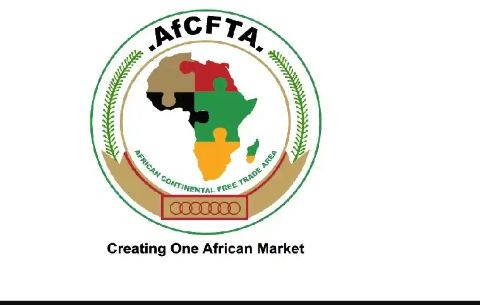The African Continental Free Trade Area (AfCFTA), according to the United Nations Economic Commission for Africa (UNECA), increased trade between member nations in the region by 20% in 2022.
In Niamey, Niger Republic, Antonio Pedro, acting executive secretary of UNECA, spoke about the AfCFTA project’s success during the 9th session of the Africa regional conference on sustainable development.
By 2022, the commission predicted that the AfCFTA would have increased intra-African trade by 52%.
Pedro added that although the level of commerce had increased, it had still not reached the target of 52% intra-African trade.
Yet, he said that an increase in intra-African commerce had already spurred several nations to engage in bilateral trade.
Read Also: Seven Secret: How To Become A Successful Investor In Nigeria 2023
Trade inside Africa has increased from roughly 13 percent when the AfCFTA agreement was adopted to about 20 percent at this time, but it is still insufficient because other areas are trading among themselves. It is roughly above 70% in Europe and Asia. We are aiming for that. Scale now genuinely refers to the extent of these motions, which must span the entire continent.
One is to look at how our countries’ products complement one another, so we might have African countries trade inputs with a country that, say, has a lot larger processing capability.
According to Pedro, the commission was experimenting to determine the best export destinations for African states as part of a trade decision-supporting modeling process.
The gap between African nations, he claimed, was significantly greater than the separation between Africa and other continents.
Although Nigeria is undoubtedly the nearest trading partner in the study we conducted on Cameroon, it is also noteworthy to note that the Democratic Republic of the Congo (DRC), which is not far from Cameroon, is also within trading distance.
China and the U.S., which are far away, trade with Cameroon more frequently than the DRC.
Why is DRC so far away in terms of trade? That is a result of infrastructure problems. There are problems with the linkages, and we need to solve the infrastructure-related barriers that prevent African nations from trading with one another.
Pedro said that it was necessary to mainstream and domesticate the protocols that had been authorized as well as some that were in the works in national legislation.
In conclusion, there are still instances where the customs offices are in the dark. I.e trading within these AfCFTA trade regimes are existing and they do not know the list of 90 percent of products that can be traded without barriers or levies.


